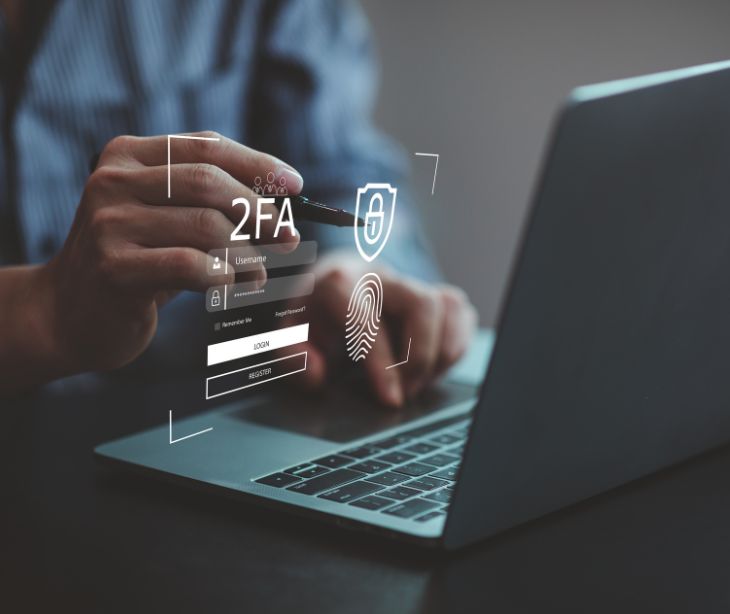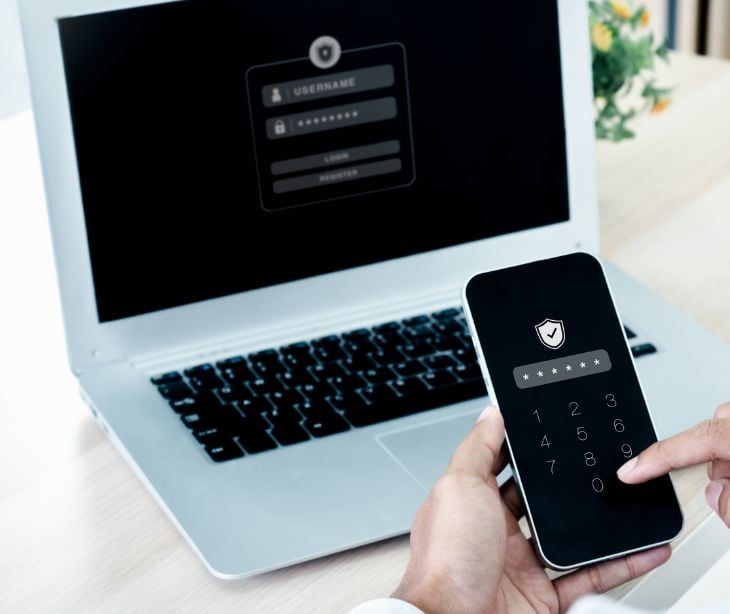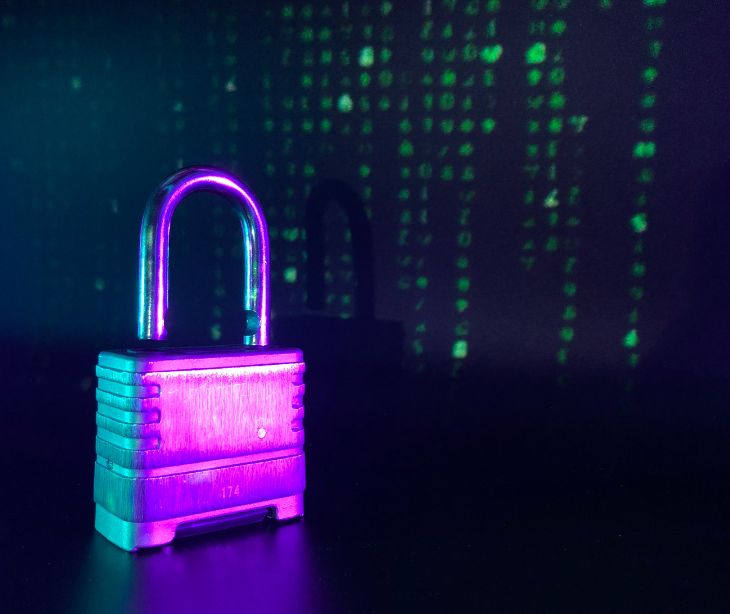2 min read
Is two-factor authentication required for electronic prescriptions?
Caitlin Anthoney August 08, 2024

No, not all electronic prescriptions require two-factor authentication (2FA).
What is two-factor authentication?
Two-factor authentication (2FA) is a security process that requires two different verification forms to access an account or system. Typically, 2FA involves something the user knows (like a password or PIN) and something the user has, like a smartphone, a security token, a smart card, or a code sent via text.
2FA adds an extra layer of protection, so even if someone gains access to the password, they still need the second factor to gain access, making unauthorized access more difficult.
What are the requirements for electronic prescriptions?
No federal regulation requires using 2FA for electronic prescriptions for non-controlled substances.
However, the Code of Federal Regulations Part 1311, which governs electronic orders and prescriptions, states, "To sign a controlled substance prescription, the electronic prescription application must require the practitioner to authenticate to the application using an authentication protocol that uses two of the following three factors:
- Something only the practitioner knows, such as a password or response to a challenge question.
- Something the practitioner is, biometric data such as a fingerprint or iris scan.
- Something the practitioner has, a device (hard token) separate from the computer to which the practitioner is gaining access.”
Providers must ensure that their electronic prescriptions meet these authentication requirements to protect patient information from unauthorized access and comply with federal regulations like the Health Insurance Portability and Accountability Act (HIPAA).
2FA and HIPAA compliance
The Department of Health and Human Services (HHS) Office for Civil Rights (OCR) document on HIPAA Security Guidance recommends 2FA for HIPAA compliance.
Specifically, the document states that when “Log-on/password information is lost or stolen [it can lead to] unauthorized or improper access to or inappropriate viewing or modification of [protected health information].”
It also recommends using 2FA for granting remote access to systems that contain electronic protected health information (PHI) and performing authentication when granting remote access to a workforce member.
Moreover, physicians and other prescribing health professionals who use electronic prescriptions must use HIPAA compliant forms to safeguard patients’ protected health information (PHI).
Tips for HIPAA compliance in electronic prescribing
HIPAA compliant platforms: Providers must use a HIPAA compliant platform, like Paubox, which automatically encrypts forms and communications to protect patient privacy.
Two-factor authentication: HIPAA compliant forms use 2FA, ensuring that only authorized providers can issue prescriptions, minimizing the risk of unauthorized access to patient records and prescriptions.
Access controls: Healthcare organizations must restrict access to electronic prescribing systems to authorized personnel only.
Audit trails: HIPAA compliant forms also records who accesses and issues electronic prescriptions to monitor for unauthorized access or potential breaches.
Patient consent: Providers must obtain explicit patient consent to use their PHI in electronic prescriptions.
FAQs
Is two-factor authentication required for all electronic prescriptions?
No, federal regulations do not require two-factor authentication (2FA) for all electronic prescriptions. The Drug Enforcement Administration (DEA) mandates 2FA only for electronic prescriptions of controlled substances, but there is no 2FA federal requirement for uncontrolled substances.
Should electronic prescriptions be HIPAA compliant?
Yes, electronic prescriptions must be HIPAA compliant because they involve the transmission and storage of sensitive patient information.
HIPAA compliance helps prevent unauthorized access, data breaches, and legal consequences, ultimately protecting patients and healthcare providers.
How do HIPAA compliant forms protect patient privacy?
HIPAA compliant forms, like Paubox forms, use encryption to protect patients’ protected health information (PHI) and identifiable information like names, addresses, and financial information.
Read also: What is personally identifiable information (PII)?
Subscribe to Paubox Weekly
Every Friday we'll bring you the most important news from Paubox. Our aim is to make you smarter, faster.




